Ballot Initiatives
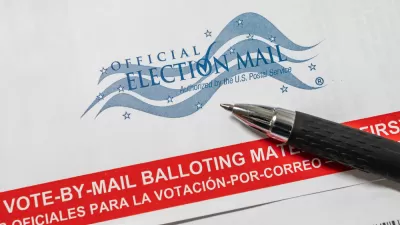
Planner’s Guide to 2024 State and Local Ballot Outcomes
Transit and environment came out on top on state and local ballots nationwide, while housing and marijuana initiatives proved less popular with voters.
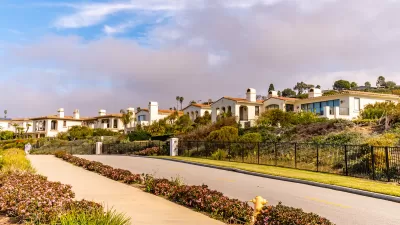
California Cities Continue Fight Against State Preemption
Lafayette City Council Member Susan Candell penned an op-ed in support of a lawsuit to invalidate Senate Bill 9 by four Southern California cities, highlighting a recent supportive court filing by UCLA economic geographer Michael Storper.
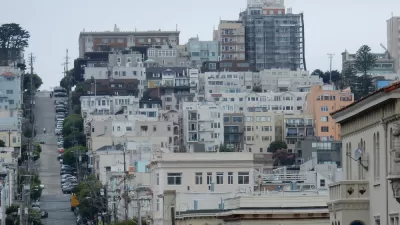
A Vacancy Tax for San Francisco? Voters Might Have a Say.
A San Francisco politician is pushing for a vacant home tax to appear on the November ballot.
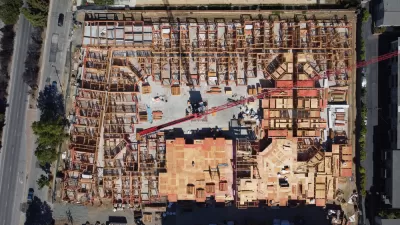
Ballot Initiative Could Overturn California's Zoning Reforms
The "mother of all NIMBY initiatives" is seeking signatures to qualify for the statewide ballot in California.
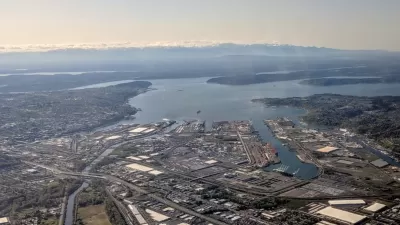
Election 2019: Devastating Transportation Funding Loss in Pacific Northwest
Washington voters' approval of Initiative 976, which put a limit on car tab increases as well as repealing many motor vehicle fees, will have far-reaching consequences for funding road maintenance, transit, and bike and pedestrian projects.

Another State Rejects a 10-Cents per Gallon Gas Tax Hike
It was not your basic fuel tax hike. Utah voters were told that raising the tax would help education by redirecting revenue from the General Fund to schools that currently goes to transportation. Yet voters also passed decidedly liberal initiatives.
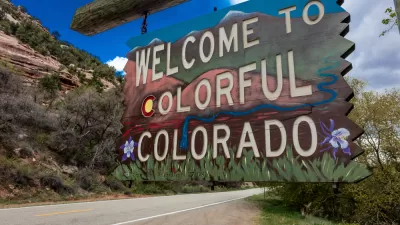
Another Major Statewide Transportation Funding Loss on Election Day
Similar to Missouri voters, who rejected a 10-cents per gallon tax hike placed on the ballot by the state legislature, Colorado voters rejected two competing initiatives to finance transportation improvements placed on the ballot by citizen groups.
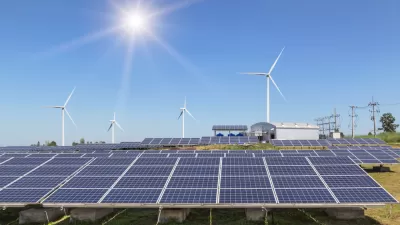
Mixed Results on Renewable Energy Initiatives
Two western states had very similar renewable energy initiatives on the ballot sponsored by NextGen America requiring utilities to get 50 percent of electricity by 2030. It passed in Nevada but was rejected in Arizona.
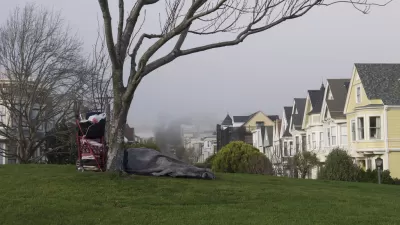
Will More Money Solve San Francisco's Homelessness Problem?
San Francisco voters will decide on Proposition C, a business tax based on gross receipts levied on large employers, the most contentious of five local measures.
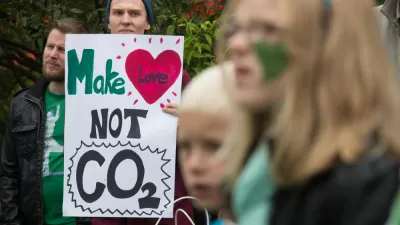
IPCC Report Sways Microsoft to Endorse Carbon Fee Initiative on Washington Ballot
A dire report on climate change issued by a United Nations panel influenced Washington-based Microsoft to take a position on a controversial state carbon fee, Initiative 1631. Oil companies are fighting back, citing wide exemptions from the fee.
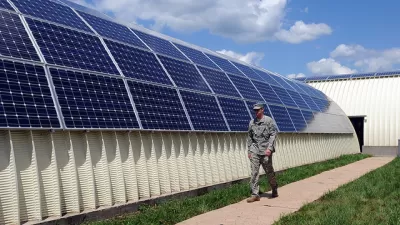
Arizona and Nevada to Vote on Renewable Energy Initiatives
Voters in two Western states next month will determine whether to require energy utilities to increase their share of electricity from renewable sources to 50 percent by 2030. In Arizona, the campaign has become the costliest in state history.
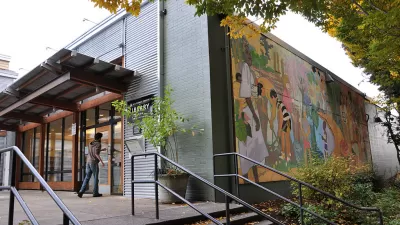
The 3 E's of Sustainability in Local Climate Action: The Portland Clean Energy Initiative
Urban sustainability efforts have historically failed to advance all three E’s of sustainability: environmental action, economic development, and equity. However, a movement is underway to put equity—the oft-ignored E—at the forefront.
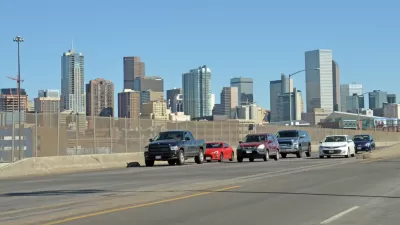
Colorado Voters to Decide How to Fund Roads on Election Day
Two transportation bonding initiatives will appear on the ballot on Nov. 6: A $3.5 billion measure would have debt repayments come from the general fund, while a $6 billion initiative would create a revenue stream by hiking sales taxes.

Oil and Gas Drilling Issues Loom Large in Colorado on Election Day
Unlike prior initiatives that sought drilling bans, Prop. 112 would greatly increase setbacks from buildings to such an extent that it could doom much of the industry. A competing initiative would make the change a "taking" and require compensation.
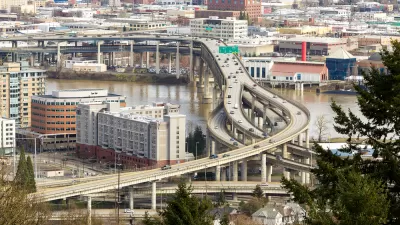
Tolling of Portland Interstates Could Be Decided by Voters in 2020
Should plans to toll Interstates 5 and 205 in Portland get the go-ahead from the Oregon Transportation Commission and the Federal Highway Administration, they would still be subject to a state referendum.
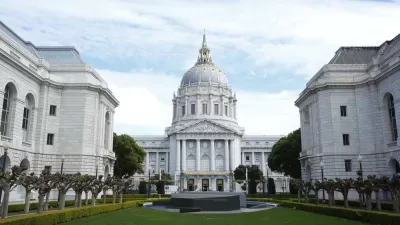
San Francisco Voters to Decide on Employer Tax to House the Homeless
It started in Seattle with the Amazon Tax to pay for transportation and housing needs exacerbated by the city's largest employers. Last month, a Google Tax was placed on the November ballot in Silicon Valley. A landlord tax in Oakland could be next.
California Gas Tax Repeal Update: And Then There Was One
One of two initiatives to repeal last November's 12-cents per gallon gas tax increase failed to attract enough signatures by the Jan. 8 deadline. However, the other initiative has major backing and will likely appear on the Nov. 6 ballot.

The Landlord's Case for Stronger Rent Control
A small San Francisco landlord argues for repealing state restrictions on rent control.
Repeal of Gas Tax Increase Possible in California
After several years, Sen. Jim Beall's persistent efforts to address the state's $130 billion road and bridge shortfall finally passed the legislature, but Assemblyman Travis Allen hopes to repeal the 12-cent tax hike through the initiative process.
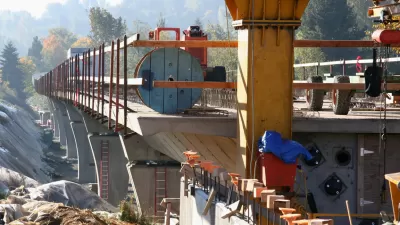
Details of the Seattle's Big ST3 Light Rail Plan
The $54 billion ST3 plan would add 62 miles of light rail over 25 years.
Pagination
Urban Design for Planners 1: Software Tools
This six-course series explores essential urban design concepts using open source software and equips planners with the tools they need to participate fully in the urban design process.
Planning for Universal Design
Learn the tools for implementing Universal Design in planning regulations.
Heyer Gruel & Associates PA
JM Goldson LLC
Custer County Colorado
City of Camden Redevelopment Agency
City of Astoria
Transportation Research & Education Center (TREC) at Portland State University
Jefferson Parish Government
Camden Redevelopment Agency
City of Claremont


































